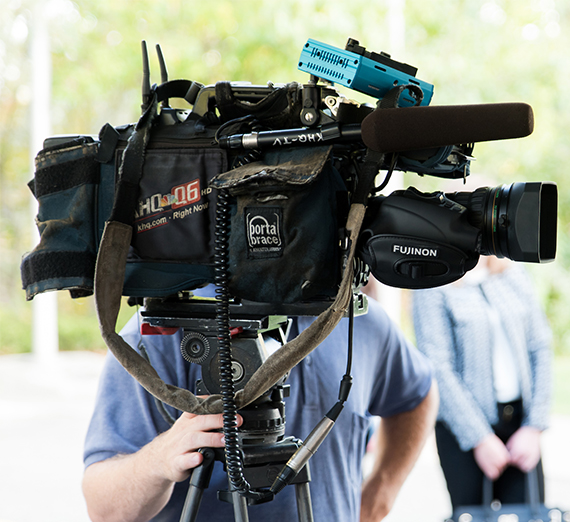Media and Democracy: Time for a Reset

As media consumers and creators in today’s world, there is an opportunity to reflect on how corporate media and social media have transformed the democratic process. This topic is especially relevant as the presidential election season unfolds.
Recently, Gonzaga’s School of Leadership Studies participated in Media & Democracy: Time for a Reset, sponsored by the Northwest Alliance for Responsible Media with the University of Washington’s NW Center for Media Literacy, Media Literacy Clearinghouse and Fix Democracy First. Master's in Communication and Leadership professor Carolyn Cunningham and retired Gonzaga professor John Caputo joined the panel alongside media experts Dennis Muller (Australian Broadcast Corporation), Sandra Williams (The Black Lens) and Frank Baker (Media Literacy Clearinghouse). Together, they addressed the role of media in democracy, media consolidation, media literacy, and the importance of supporting local media.
Following is a recap.
What role does the media play in democracy and why does democracy need media?
Williams replied, “The vast majority of the country are not in the rooms where decisions are made.”
Therefore, the public has to rely on media to serve as the eyes and ears of our democracy. The information made available through media is assumed to be the truth. Not only does media serve as this backstage access, but the panel emphasized that media also holds democracy accountable and serves to challenge the status quo. Especially in today’s society, social and corporate media presence has allowed virtually everyone to share their own stories, both truth and falsehood.
How did we get here?
Caputo stated that as society has become media-saturated, it has also become solely reactionary. People do not seek to necessarily construct media, but rather to respond, to like, dislike, or to share it.
Muller explained that with the decline of trust in institutions, exacerbated through the COVID-19 pandemic, mass media and social media have magnified divisive public discourse. This has ultimately made polarization worse.
Who is telling these stories? Are the stories being told representative of the population that it serves?
Cunningham described the inequity of media ownership in regard to race and gender. The current lack of diversity in the media and its storytellers can further misrepresent people of color through the way a story is told or the perspective from which it is told. Cunningham said, “When people are not seeing stories about themselves in the newspapers, then they feel erased and they don’t feel like their perspectives matter.”
Williams shared about experience with a past publication and analysis revelaing that the publication was not accurately representing the stories of Blacks in Spokane. As a result, she wanted to produce a newspaper with an alternate view of people of color and created her independent publication, The Black Lens. She emphasized the importance of both how a story is told and who tells the story, as “The press still has a tremendous amount of power to influence thought processes.”
What can people do to bring about or encourage change in the system?
Baker highlighted the importance of media literacy and encouraging students to apply critical thinking to all media messages, because “media literacy is virtually non-existent” in today’s classroom curriculum, despite the influx of media sharing. To bring about change in the system, it is imperative to stay informed and utilize the necessary skills to analyze and verify information accessed through media.
Here are ways the panelists believe people can assist in preserving democracy:
- Train journalists better
- Support local/not-for-profit media
- Recommit to journalism ethics
- Seek a diversity of perspectives
- Foster dialogue between communities and storytellers
- Invest in independent media
